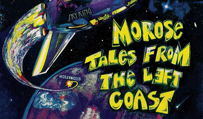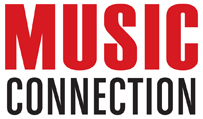
Engaging a manager is a milestone event in an artist’s career. Indeed, most artists would love to have someone take care of business and enable them to develop artistically. However, in order to have a rewarding management experience, artists need to know what is involved and what is expected. In this exclusive feature, Music Connection spoke with a trio of experts to analyze and discuss the most important areas in management relationships, and contracts in particular.
THE WRITTEN WORD
Managers are one of the few artist reps who are unlicensed, unregulated and need no experience (unlike, attorneys, agents and business managers). In fact, anyone can call him or herself a manager; all they need is a business card. That’s not necessarily a bad thing––if a manager is passionate about an artist and bright enough to learn the business––but it could be a scary thing, especially if there are unrealistic expectations. A written contract could clarify the situation and outline what each person is expected to do.
Music attorney Burgundy Morgan affirms, “For most people the written word is a useful tool. It can clear up confusion and encourage communication. But, she warns, “A death rattle can start when unspoken expectations are not met. An artist and manager need to know what each wants and expects out of the relationship. And, a contract is a good way to flesh that out.”
YEAH… BUT WHERE DO
I SIGN?
Although they should know better, artists sometimes step on their own feet, especially when it comes to signing contracts. They will sign the first piece of paper put in front of them, often to their detriment.
Morgan, a veteran music attorney and professor for the Music Business Program at the Musicians Institute in Hollywood, saw that scenario so often she co-authored a book titled, …But Where Do I Sign? (a guide to understanding music industry contracts). She believes artists sign the first contract they’re offered because they’re both excited and intimidated. “They’re afraid the deal will go away if they question it,” she explains. “It’s a lack of confidence on the artists’ part. And, unfortunately, they may sign an unfair agreement because of that fear.”
In reality, music biz professionals expect questions, clarifications and negotiations regarding a contract. “In fact,” Morgan states, “they should have no problem with it at all, as long as they’re fair and reasonable people. Everything is negotiable in this business. But, most importantly, artists should always have someone knowledgeable review (and possibly negotiate) a contract before they sign it.”
FLYING NAKED
Some managers––often, top-drawer management companies––fly naked and have no written agreements with their artists. Of course, Morgan notes, “Oral and implied agreements are still enforceable. And usually it’s high-powered managers with superstar acts who forgo contracts, because they both do what they say they’ll do and actually get results.”
Rob “Blasko” Nicholson is one of those managers. An artist himself, he is best known as the bassist for Rob Zombie, Danzig and Ozzy Osbourne. In 2005, he co-founded Mercenary Management with John Fenton, and currently represents Zakk Wylde, Black Label Society, Powerman 5000 and Black Veil Brides, among others.
Blasko relates, “I take it on a case by case basis. If an artist is already established, has sold records, tours, and knows what a manager does, I’m more inclined to go without paper. You usually know if it will work right away.”
With new acts, however, Blasko prefers contracts. “Sometimes in this business,” he notes, “you work hard developing an act, which may take years to take them from zero to 60…and, then, just when you should be enjoying the rewards of your labor they leave (or get stolen). With a contract at least you can protect your investment.”
Morgan opines, “The relationship between an artist and manager is only as good as the people involved––whether they have a written agreement or not. If management does what they say they will do, and artists recognize it, it can work out.” But, Morgan believes clear communication is vital. “Artists and managers must communicate in a transparent and honest way. If they do that, they’ll have a better chance of achieving their goals and growing together.”
THE MANAGEMENT CONTRACT
Most managers want their artists to sign written agreements. If you are offered a management contract, there are some issues that you really should know about. Below we list and discuss seven of the most important areas that artists should be aware of.
1 DEFINE TERMS
& OPTIONS
The term (i.e. time period) of a management agreement is important. You need to know how long it will last and if there are options to extend it. Most management agreements range from two to three years with options. Some managers, like Blasko, use album cycles. “I think that makes more sense,” he says. “Albums are milestones in an artist’s career.” That may be true, but options are the tricky parts.
According to renowned music attorney Ben McLane, who represents superstars as well as emerging artists, and has authored of over 75 articles about the music business, “It’s important to know how an option is exercised. Some options roll into new terms automatically, while others are subject to conditions.” It should be noted, though, that options are generally at the discretion of management.
McLane notes, “Most managers are reluctant to give artists any power regarding options. Even mutual approval is hard to get.” As a result, artists may want to impose performance conditions (see below) on option periods, as well as the relationship itself.












